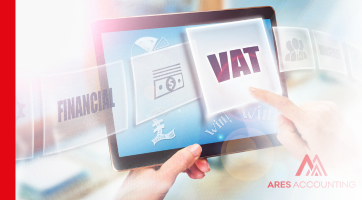Understanding the basics of VAT in Dubai, or Value Added Tax (VAT) is essential for any entrepreneur, especially in a dynamic market like Dubai. As a French-speaking entrepreneur based in the UAE, mastering the fundamental aspects of VAT is crucial to ensure your business’s compliance and optimize your financial operations. This article aims to guide you through the key elements of VAT in Dubai, simplifying the concepts to make them accessible, even if you have no accounting knowledge.
What is VAT?
VAT in Dubai, or Value Added Tax, is an indirect tax applied to the consumption of goods and services. Introduced in Dubai in January 2018, VAT is set at a standard rate of 5%. Unlike other taxes, VAT in the UAE is collected by businesses on behalf of the government, making it a central element of any company’s financial management.
Why is VAT important for your business?
As an entrepreneur in Dubai, understanding VAT is crucial for several reasons:
- Legal Compliance: Failing to meet your VAT obligations in the UAE can lead to severe fines and penalties. It’s essential to ensure that your business is in compliance.
- Financial Management: VAT in the UAE directly impacts your cash flow. Knowing how to calculate and reclaim VAT can help you better manage your finances and avoid surprises at the end of the year.
- Brand Image: A rigorous approach to VAT management enhances your company’s credibility with customers and business partners.
How does VAT work in Dubai?
The operation of VAT in Dubai is relatively straightforward, but it requires careful attention. Here are the key steps:
- VAT Registration: If your company’s annual revenue exceeds AED 375,000, you are required to register for VAT. For those with revenue below this threshold but above AED 187,500, registration is optional.
- VAT Invoicing: Once registered, you must add 5% VAT to most of your sales of goods and services. This tax is collected from your customers and must be remitted to the tax authorities.
- VAT Filing: Every quarter, you must submit a VAT return detailing the amounts collected and the amounts paid on your purchases. The difference between the two constitutes the VAT payable to the government or the refund to which you are entitled.
What are the common VAT challenges for entrepreneurs?
For French-speaking entrepreneurs in Dubai, VAT-related challenges can seem daunting, especially without accounting knowledge:
- Understanding the Rules: The intricacies of VAT, such as exemptions or reduced rates, can be confusing.
- Cash Flow Management: VAT can affect your cash flow, especially if your clients pay late or if you have bad debts.
- Accurate Filing: Accurately completing VAT returns requires time and knowledge, with financial penalties linked to VAT errors in the UAE.
How to simplify VAT management for your business?
There are several strategies to simplify VAT management, even if you have no accounting knowledge:
- Hire an Expert: Working with an accountant or a firm specializing in UAE VAT can ensure you meet all legal obligations without stress. Our firm can handle your VAT management in Dubai.
- Use Accounting Software: Many software programs can automate VAT management, from invoicing to filing, reducing the risk of errors.
- Educate Yourself on the Basics: Taking short courses or webinars on VAT can give you the necessary basics to better understand your tax obligations.
VAT is an unavoidable aspect of running a business in Dubai. For French-speaking entrepreneurs, mastering VAT basics may seem complex, but with the right resources and some training, you can navigate this area with confidence. Don’t let VAT in the UAE become a hurdle for your business. Instead, consider it a tool to strengthen your financial management and legal compliance. For more personalized assistance, feel free to consult an accounting expert support@ares-accounting.com.


